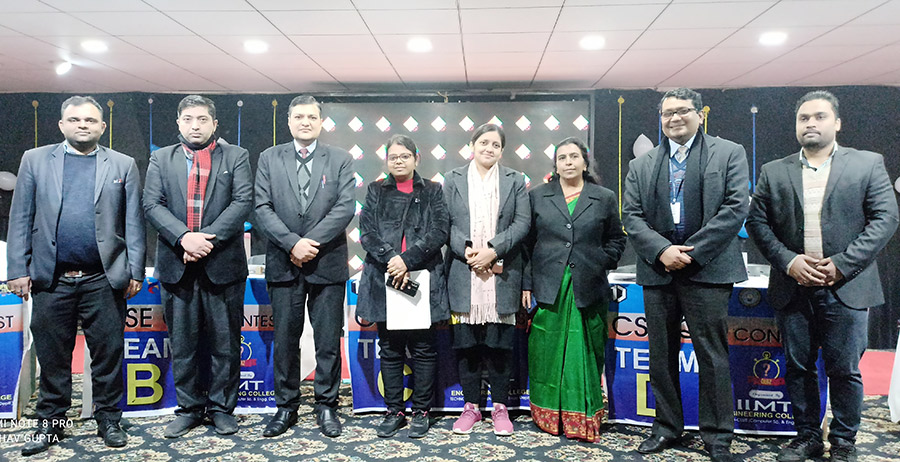The Department of Computer Science & Engineering (CSE) was established in 2001 with the mission of providing world-class education and fostering innovation in the field of computer science. Starting with an initial intake of 60 students per year, the department has expanded to 240 students annually, reflecting its consistent growth and commitment to academic excellence..
As a hub of innovation, research, and experiential learning, the department is dedicated to equipping students with cutting-edge knowledge, technical expertise, and problem-solving skills essential for success in the rapidly evolving technology sector. We offer a dynamic learning environment with smart classrooms, state-of-the-art laboratories, and a well-equipped seminar hall, ensuring holistic development and hands-on experience.
Our faculty comprises highly qualified academicians, researchers, and industry experts, specializing in diverse domains of computer science. Through a rigorous curriculum, industry collaborations, and research-driven learning, we empower students to excel in both academia and the professional world.
With a strong emphasis on global standards and interdisciplinary innovation, the department aspires to become a Center of Excellence, producing technologically adept, globally competitive, and ethically driven professionals poised to lead the digital revolution.
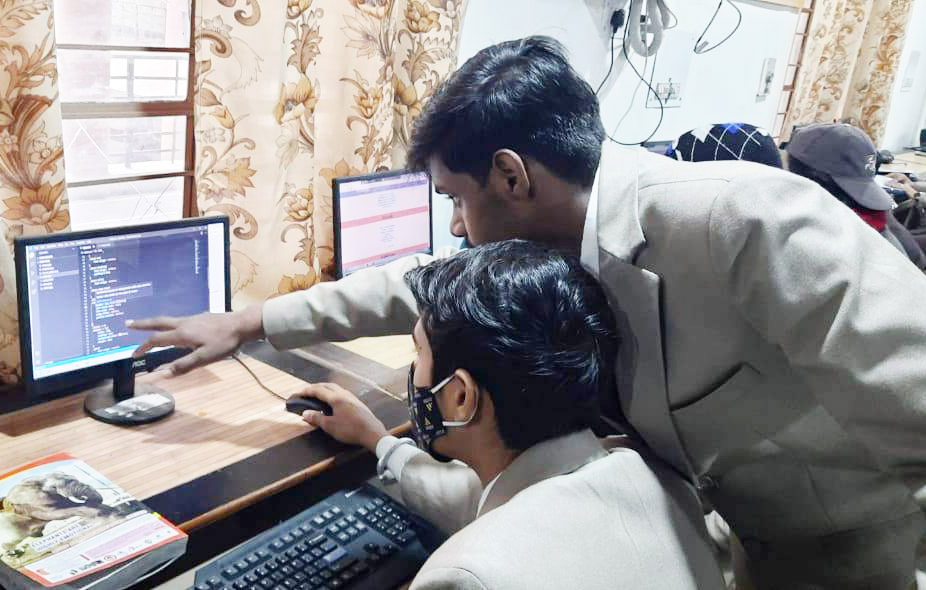
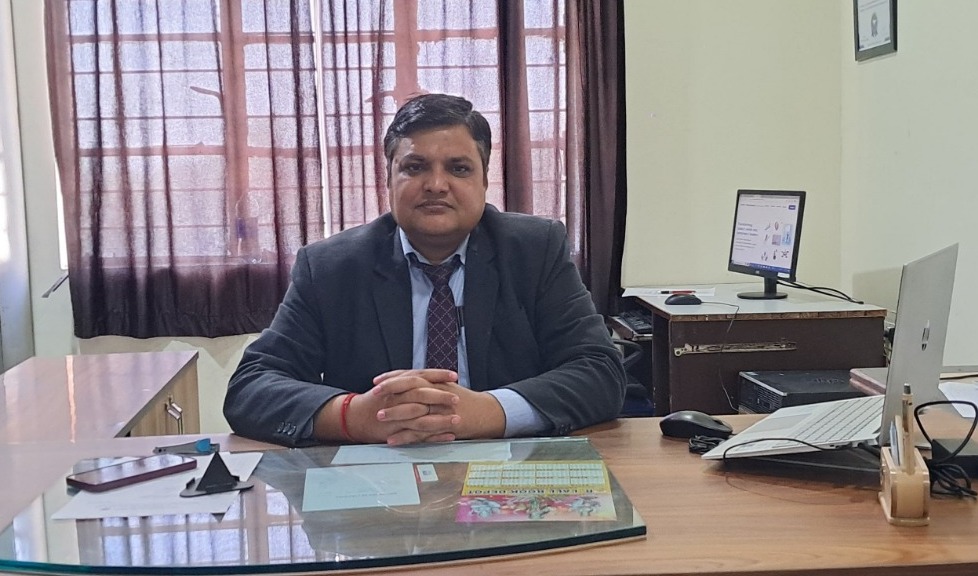
The Department of Computer Science & Engineering at IIMT Engineering College, established in 2001, is dedicated to academic excellence, innovation, and industry-driven education. The department offers a meticulously designed B.Tech. (CSE) program, aimed at equipping students with cutting-edge technical expertise, analytical thinking, and problem-solving skills essential for success in the field of Computer Science and Engineering.
To provide experiential learning and practical exposure, the department features state-of-the-art laboratories, continuously upgraded to align with the latest industry trends. Our students gain in-depth proficiency in C,C++, Python, Java, Oracle, Cloud Computing, Big Data, Artificial Intelligence (AI), and AI & Data Science (AI/DS)—technologies that are shaping the future of computing and automation.
Since its inception, the department has been driven by a clear vision and mission, emphasizing holistic student development through a blend of academic rigor, hands-on experience, and industry collaboration. Backed by a team of highly qualified and dedicated faculty members, we create an intellectually stimulating environment that nurtures innovation, research, and leadership skills.
Beyond the curriculum, the department actively organizes short-term certification programs, value-added courses, industry-led webinars, and international conferences, all designed to enhance students' applied skills and bridge the gap between academia and industry expectations.
Our distinguished alumni have made remarkable contributions in leading global organizations such as Tata Consultancy Services, IBM, Wipro Technologies, Tech Mahindra, and many more. Their achievements stand as a testament to the quality education, professional preparedness, and transformative learning fostered at IIMT Engineering College, propelling the institution to greater heights of prestige and global recognition.
To develop a renowned education centre imparting technical knowledge catering to the needs of changing trends of the corporate world and to contribute in the field of consultancy and research.
PEO-1: Students will be able to successfully start their careers in the field of computer science and allied sectors as an innovative engineer.
PEO-2:Students will continue to learn and advance their careers through participation in professional activities, attainment of professional certification and seeking advance studies.
PEO-3: Students will be able to demonstrate a commitment to life-long learning.
PEO-4: Students will be ready to serve society in any manner and become a responsibly aware citizen.
PEO-5: Developing students for a leadership role in any field.
PO-1:Engineering Knowledge: Apply the knowledge of mathematics, science, engineering fundamentals, and an engineering specialization to the solution of complex engineering problems
PO-2:Problem Analysis:Identify, formulate, review research literature, and analyze complex engineering problems reaching substantiated conclusions using first principles of mathematics, natural sciences, and engineering sciences.
PO-3:Design/Development of Solutions: Design solutions for complex engineering problems and design system components or processes that meet the specified needs with appropriate consideration for the public health and safety, and the cultural, societal, and environmental considerations.
PO-4:Conduct Investigations of Complex Problems:: Use research-based knowledge and research methods including design of experiments, analysis and interpretation of data, and synthesis of the information to provide valid conclusions.
PO-5:Modern Tool Usage: Create, select, and apply appropriate techniques, resources, and modern engineering and IT tools including prediction and modeling to complex engineering activities with an understanding of the limitations.
PO-6:The Engineer and Society: Apply reasoning informed by the contextual knowledge to assess societal, health, safety, legal and cultural issues and the consequent responsibilities relevant to the professional engineering practice.
PO-7:Environment and Sustainability: : Understand the impact of the professional engineering solutions in societal and environmental contexts, and demonstrate the knowledge of, and need for sustainable development.
PO-8: Ethics: Apply ethical principles and commit to professional ethics and responsibilities and norms of the engineering practice.
PO-9: Individual and Team work: Function effectively as an individual, and as a member or leader in diverse teams, and in multidisciplinary settings.
PO-10: Communication: Communicate effectively on complex engineering activities with the engineering community and with society at large, such as, being able to comprehend and write effective reports and design documentation, make effective presentations, and give and receive clear instructions.
PO-11: Project Management and Finance: Demonstrate knowledge and understanding of the engineering and management principles and apply these to one’s own work, as a member and leader in a team, to manage projects and in multidisciplinary environments.
PO-12: Life-long Learning: Recognize the need for, and have the preparation and ability to engage in independent and life-long learning in the broadest context of technological change.
PSO-1: Ability to apply and analyse computational concepts in the areas related to algorithms, machine learning, cloud computing, web designing and web services.
PSO-2:Ability to apply standard practices and methodologies in software development and project management.
PSO-3: Ability to employ fundamental concepts and emerging technologies for innovative research activities, carrier opportunities & zeal for higher studies.
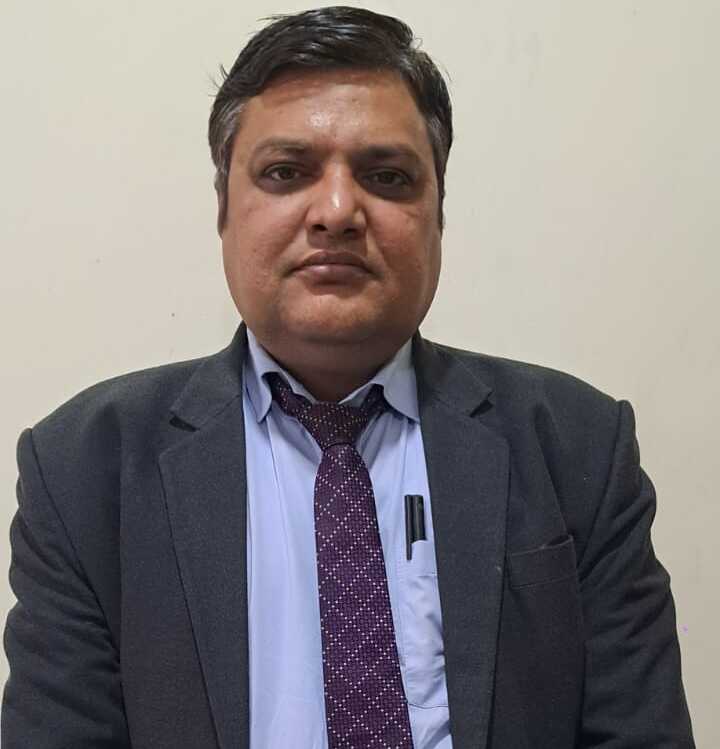
Name:DR. Rajeev Sharma
Designation:HOD-CSE
Experience:16 Years
Specialization:Fuzzy Logic And Neural Networks
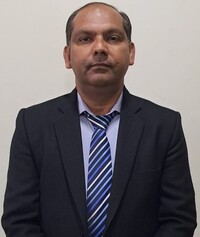
Name:MR. Neeraj Kumar Gupta
Designation:Assistant Professor
Experience:25 Years
Specialization:PROGRAMMING LANGUAGES
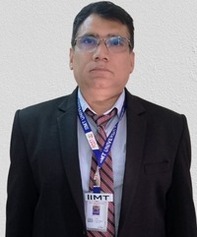
Name:Tarun Awasthi
Designation:Assistant Professor
Experience:28 Years
Specialization:Computer Networks
& Cyber Security
Name:MR. Renu Kumar
Designation:Assistant Professor
Experience:08 Years
Specialization:Daa (Design And Analysis of Algorthims), Theory Of Automata
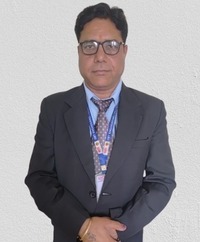
Name:MR. KULDEEP KUMAR
Designation:Assistant Professor
Experience:19 Years
Specialization:DAA,DBMS,Compiler Design,Computer Network
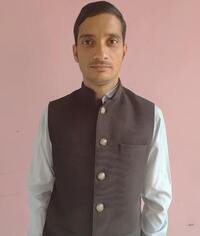
Name:Mr.Saurabh Tyagi
Designation:Assistant Professor
Experience:06 Years
Specialization:Programming & Problem Solving
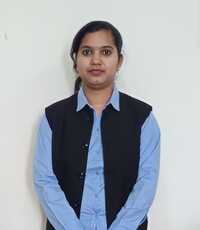
Name:Ms.Anshika Rana
Designation:Assistant Professor
Experience:1.5Years
Specialization:Web Designing
| Programme | Duration | Eligibility |
|---|---|---|
| B.Tech. | 4 Years |
Candidates must have passed the 10+2 level examination with Physics, Chemistry, and Mathematics or an equivalent qualification from any recognized Board, with a minimum aggregate of 45% marks for General & OBC categories and 40% marks for SC/ST categories in the subject group |
|
To apply for B.Tech (Lateral Entry), candidates must have completed a three-year or four-year diploma in any branch of Engineering or Technology, except Agricultural Engineering, with a minimum aggregate of 60% marks from an institution recognized by the U.P. Board of Technical Education. |
After the course, students should be able to:
1. To develop simple algorithms for arithmetic and logical problems.
2. To translate the algorithms to programs & execution (in C language).
3. To implement conditional branching, iteration and recursion.
4. To decompose a problem into functions and synthesize a complete program using divide and conquer approach.
5. To use arrays, pointers and structures to develop algorithms and programs. Know the basic concepts of Function, Array and Link-list.
After the course, students should be able to:
1. Students will be enabled to understand the basic objective of the course by being acquainted with specific dimensions of communication skills i.e. Reading, Writing, Listening, Thinking and Speaking.
2. Students would be able to create substantial base by the formation of strong professional vocabulary for its application at different platforms and through numerous modes as Comprehension, reading, writing and speaking etc.
3. Students will apply it at their work place for writing purposes such as Presentation/official drafting/administrative communication and use it for document/project/report/research paper writing.
4. Students will be made to evaluate the correct & error-free writing by being well versed in rules of English grammar & cultivate relevant technical style of communication & presentation at their work place & also for academic uses.
5. Students will apply it for practical and oral presentation purposes by being honed up in presentation skills and voice-dynamics. They will apply techniques for developing interpersonal communication skills and positive attitude leading to their professional competence.
After the course, students should be able to:
1. Know the basic concepts of Function, Array and Link-list.
2. Analyze algorithms and algorithm correctness
3. Analyze space and time efficiency of searching and sorting techniques.
4. Describe stack, queue and linked list operation.
5. Implement tree and graphs concepts.
After the course, students should be able to:
1. Understand basic structure of computer.
2. Perform computer arithmetic operations.
3. Understand control unit operations.
4. Design memory organization that uses banks for different word size operations.
5. Understand the concept of cache mapping techniques.
6. Understand the concept of I/O organization
After the course, students should be able to:
1. Basic concept of python program related to data types, operation, and loop.
2. Basic concept of various set operation (union, intersession, power-set)
3. Various set operation. Is the given relation is reflexive, symmetric, transitive.
4. The concept of various number systems.
5. The concept of Various Boolean expressions
After the course, students should be able to:
1. Understand and implement basic services and functionalities of the operating system Using system calls.
2. Analyze and simulate CPU Scheduling Algorithms like FCFS, Round Robin, SJF and Priority.
3. Implement memory management schemes and page replacement schemes.
4. Simulate file allocation and organization techniques.
5. Understand the concepts of deadlock in operating systems and implement them in multiprogramming system.
After the course, students should be able to:
1. Design and implement programs on 8085 microprocessor.
2. Design and implement programs on 8086 microprocessor.
3. Design interfacing circuits with 8085.
4. Design interfacing circuits with 8086.
5. Design and implement 8051 microcontroller based systems.
After the course, students should be able to:
1. To understand usages of python and learning elementary steps of python
2. To understand use of iterative statements &Decision making statements. to understand string manipulation functions &listing concepts.
3. To understand use of Array and Functions for various purpose
4. To understand building structural records, searching concepts of data, organizing data, and recursive techniques.
5. To understand the concepts of class builing, instance creation and usintg methods of instances.
6. To learn drawing objects of different shapes, multiple object creation, handling their movements &designing them
7. To understand use of NumPy arrays, accessing data in NumPy, Fuctions of NumPy, Mathematical operations using NumPy
8. To understand and implement concepts of Data science and using their industrial applications
At the end of course, the student will be able to:
1. Understand and apply oracle 11 g products for creating tables, views, indexes, sequences and other database objects.
2. Design and implement a database schema for company data base, banking data base, library information system, payroll processing system, student information system.
3. Write and execute simple and complex queries using DDL, DML, DCL and TCL.
4. Write and execute PL/SQL blocks, procedure functions, packages and triggers, cursors.
5. Enforce entity integrity, referential integrity, key constraints, and domain constraints on database
At the end of course, the student will be able to:
1. Identify patterns, tokens & regular expressions for lexical analysis.
2. Design Lexical analyser for given language using C and LEX /YACC tools.
3. Design and analyze top down and bottom up parsers.
4. Generate the intermediate code
5. Generate machine code from the intermediate code forms
At the end of course, the student will be able to:
1. Implement algorithm to solve problems by iterative approach.
2. Implement algorithm to solve problems by divide and conquer approach.
3. Implement algorithm to solve problems by Greedy algorithm approach.
4. Implement algorithm to solve problems by Dynamic programming, backtracking, branch and bound approach.
5. Implement algorithm to solve problems by branch and bound approach.
At the end of course, the student will be able to:
1. Discover potential research areas in the field of IT
2. Compare and contrast the several existing solutions for research challenge
3. Demonstrate an ability to work in teams and manage the conduct of the research study
4. Formulate and propose a plan for creating a solution for the research plan identified
5. To report and present the findings of the study conducted in the preferred domain
At the end of course, the student will be able to:
6. Identify ambiguities, inconsistencies and incompleteness from a requirements specification and state functional and non-functional requirement.
7. Identify different actors and use cases from a given problem statement and draw use case diagram to associate use cases with different types of relationship.
8. Draw a class diagram after identifying classes and association among them.
9. Graphically represent various UML diagrams, and associations among them and identify the logical sequence of activities undergoing in a system, and represent them pictorially.
10. Able to use modern engineering tools for specification, design, implementation and testing.
At the end of course, the student will be able to:
1. Develop static web pages using HTML.
2. Develop Java programs for window/web-based applications.
3. Design dynamic web pages using Javascript and XML.
4. Design dynamic web page using server site programming Ex. ASP/JSP/PHP.
5. Design server site applications using JDDC,ODBC and section tracking API.
At the end of course, the student will be able to:
1. Simulate different network topologies.
2. Implement various framing methods of Data Link Layer.
3. Implement various Error and flow control techniques.
4. Implement network routing and addressing techniques.
5. Implement transport and security mechanisms.
At the end of course, the student will be able to:
1. Students will be able to understand the basics of distributed system ,event synchronization and termination detection.
2. Students will be able to learn the exclusive access to critical section ,successive factor of exclusion algorithms and basic concepts of deadlock.
3. Students will be able to apply the concept of distributed system to implement distributed shared memory and will learn about the agreement protocols.
4. Students will be able to apply the various algorithm for fault tolerant and recovery they will have basic idea of commit protocols.
5. Students will be able to build a fault tolerant Distributed system including the concept of concurrency control, transaction recovery and replication.
At the end of course, the student will be able to:
1. To provide the learning platform to students to enhance their employ ability skills along with real corporate exposure.
2. To enhance students’ knowledge in current technology.
3. To develop leadership ability and responsibility in student to execute the given task.
4. To Increase self-confidence of students and helps in finding their own proficiency.
5. To provide students hands on practice within a real job situation.
At the end of course, the student will be able to:
1. Formulate a real world problem and develop its requirements.
2. Develop a design solution for a set of requirements.
3. Test and validate the conformance of the developed prototype against the original requirements of the problem.
4. Work as a responsible member and possibly a leader of a team in developing software solutions .
5. Express technical and behavioural ideas and thought in oral settings.
6. Participate in and possibly moderate, discussions that lead to making decisions.
7. Express technical ideas, strategies and methodologies in written form.
8. Prepare and conduct oral presentations.
9. Self learn new tools, algorithms, and/or techniques that contribute to the software solution of the project.
10. Generate alternative solutions, compare them and select the optimum one.
At the end of course, the student will be able to:
1. Identify and analyze the real world problems and explore them.
2. Students will demonstrate the ability to discern the assignment's intended audience and objectives and respond appropriately.
3. Acquire awareness on latest technology and current trends
4. Participate in discussions for enhancement of knowledge
5. Adapt Professional ethics.
At the end of course, the student will be able to:
6. Develop and describe the idea
1. Formulate clear work plan and procedures
2. Demonstrate skills and knowledge of state-of-the-art and technological tools and techniques
3. Design and apply modern tools for designing and drafting
4. Compose and defend report using effective written and visual communication and presentation.
